Sahara interview
Before they were Sahara, this band was known as SUBJECT ESQ. The complete story with Harry Rosenkind.
Where and when did you grow up? Was music a big part of your family life?
Harry Rosenkind: I was born in Munich in 1950. My, then very young parents, both survived holocaust in Poland. They got to know each other after the war in a refugee camp for so called ‘Displaced Persons’ near Munich and got married. Because my mother had a lung disease, they had to cancel the planned emigration to Australia and settled in Munich.
One can imagine that back then music was not the center of our attention. It was important that I and my three brothers learn German immediately. That’s why we’ve always had well trained home helpers at home. Nevertheless, my parents thought I should learn an instrument as well. So, as far as I can remember, I started piano lessons at the age of eight. I did the usual exercises, simple works by Mozart and auditioning in the family circle, etc. A few years later I heard on the radio the popular German hits or hits from France, e.g. Silvie Vartan in 1962 with “The Loco-Motion” or “Madison Twist” or Petula Clark, who later, in 1964, had a big hit with “Downtown”.
“No desire for piano, I absolutely needed a guitar!”
What else?! 1962! Exactly … 1962 appeared with “Love Me Do”, the first official single by The Beatles. Although the Beatles had already published “My Bonnie” in Germany in 1961, I didn’t get that single until later. Anyway, I annoyed my piano teacher, that I wanted to play something else. He had no idea what I was talking about. He just wanted to continue on the ‘classical’ works and that’s it. I had no desire for piano, I absolutely needed a guitar!
When did you begin playing music? What was your first instrument? Who were your major influences?
I went to the same grammar school in Munich with my friend Michael Hofmann (later added ‘de Boer’ to his name). We did not live far from each other. The music of The Beatles was for us a musical ‘awakening experience’ that would change our lives. We really wanted to reenact the Beatles’ hits. I set up a so called ‘beat cellar’ at my parents’ house. Little light, maiden names written on the ceiling with candles, an old sofa, a bottle of colorful dripping candles. I built an old radio into an amplifier, however I didn’t have an electric guitar yet, just small turntable with speakers in the lid. And off we went … at least we thought. We had no idea about the guitar playing. What to do? My mother gave me an acoustic guitar and there was an older guitar teacher nearby. I still remember his name. Mr. Maurus did not last long. After some lessons with the first basics Michael and I had no desire for plucked ‘uftata … uftata … uftata’ in ¾ beat.
We were in my ‘beat cellar’ every single minute listening to the first Beatles singles (“Love Me Do”, “Please Please Me”, “From Me To You”, “Twist and Shout”, “She Loves You”, etc.) until we heard how the guitar chords went. When the first album Please Please Me by the Beatles was announced for the beginning of 1963, I went to a convenience store in the neighborhood (there were hardly any real record shops at the time) and showed my note with the ordering information for the LP Please Please Me on Parlophone. I waited impatiently a few weeks until it finally arrived, imported directly from England. We also listened to the Rolling Stones. Long-wave signals radio was so important, especially when we listened to Radio Luxembourg and heard The Rolling Stones with “I Wanna Be Your Man” in 1963 and in 1964 “It’s All Over Now”, “Not Fade Away” and “Little Red Rooster”.
Although we were in Munich, we could hear the US military channel AFN (American Forces Network). We completely forgot about the Bavarian Radio. We were staying awake at night – only then the reception worked! We used my UHER tape recorder to receive Radio Luxembourg Hit-Parades on long-wave, interference free. There they mainly played the hits from UK. So to speak ‘our’ beat music, while the AFN broadcast was more focused on country, soul and blues.
It all started with a band The Subjects. What can you tell us about some of the early material you composed? What kind of music did you play very early on?
Like hundreds of other kids and teens, wherever you could hear beat music, we too wanted to start a band and at least become as famous as The Beatles. At school I scribbled all sorts of names on little notes.
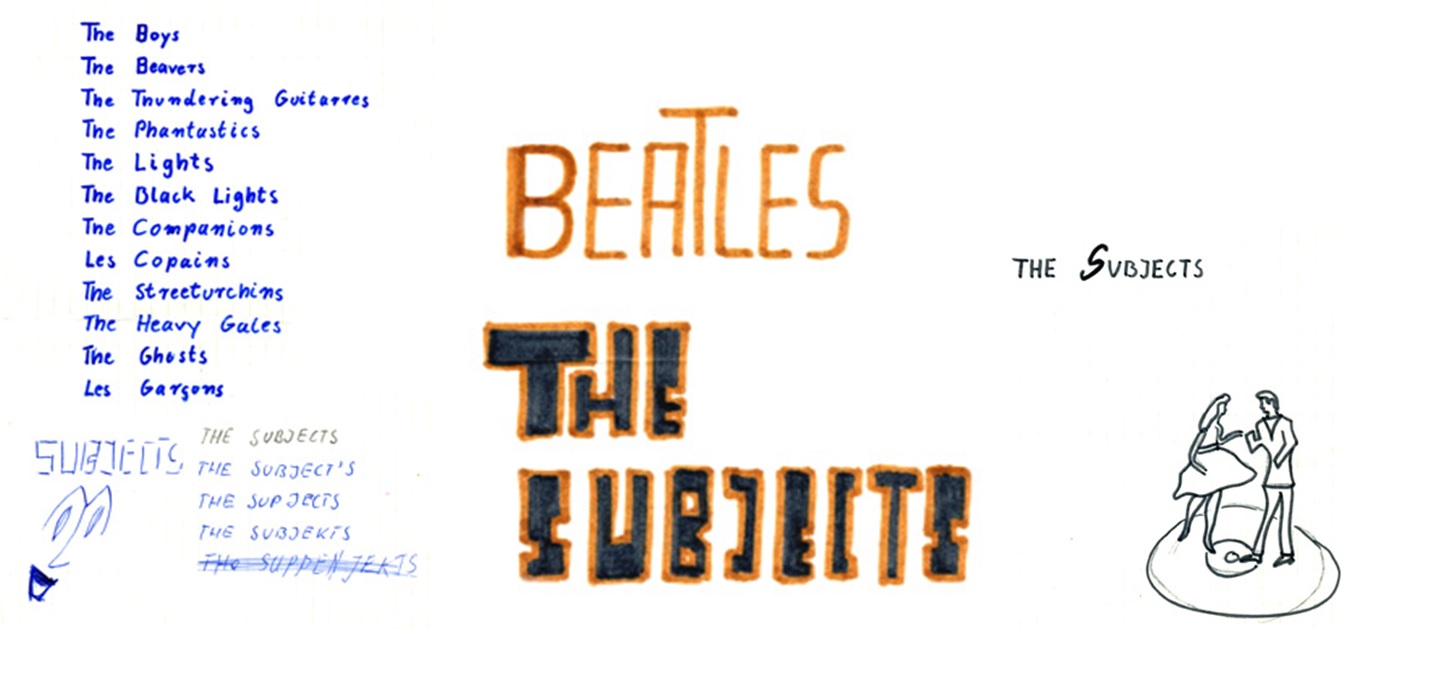
I liked the name ‘The Subjects’ best. Michael Hofmann de Boer agreed and that’s how the band was born. We still needed a few musicians to complete the lineup. That wasn’t a problem, though. We found bass player (Leo Hupmann) and a singer (Wolfi Frey) in our school. They already had their own electric guitars. We also got some guitars. I even had a twelve-string guitar with 4 (!) pickups. It was more problematic to find a drummer. A friend, Irving Weissmann, even had some drums (!) and so he was already a new band member. In addition, we were able to practice at his parents’ place in the warehouse for textiles. Irving also had microphones, amplifier and a keyboard. (more here)
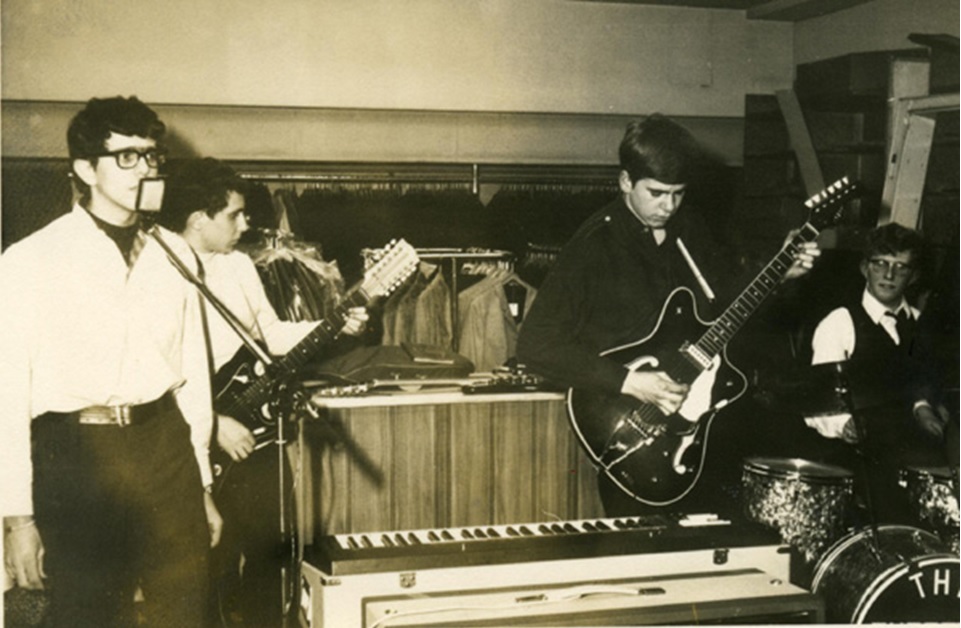
We had some of our own compositions on our setlist. I kept those setlists in my archive. Here you can check them online.
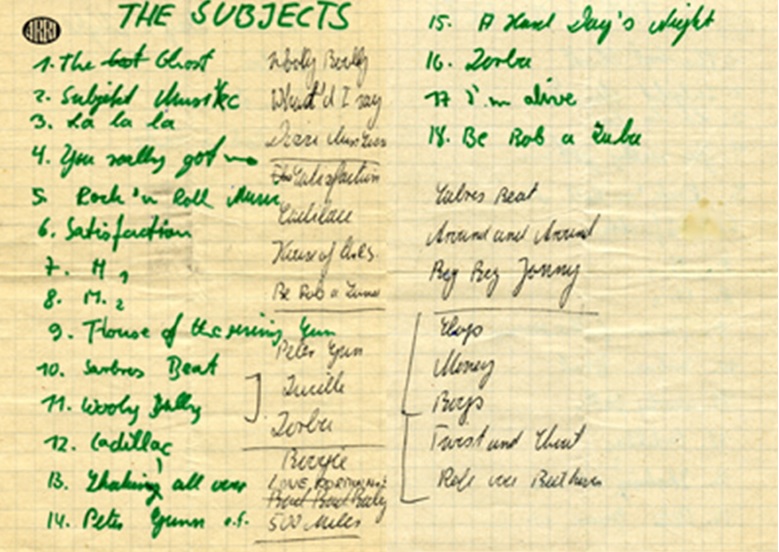
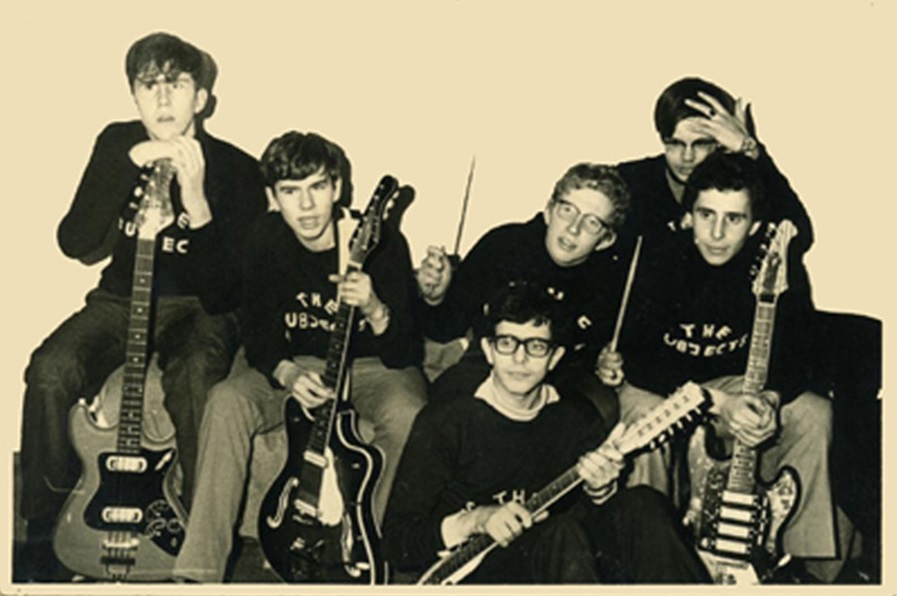
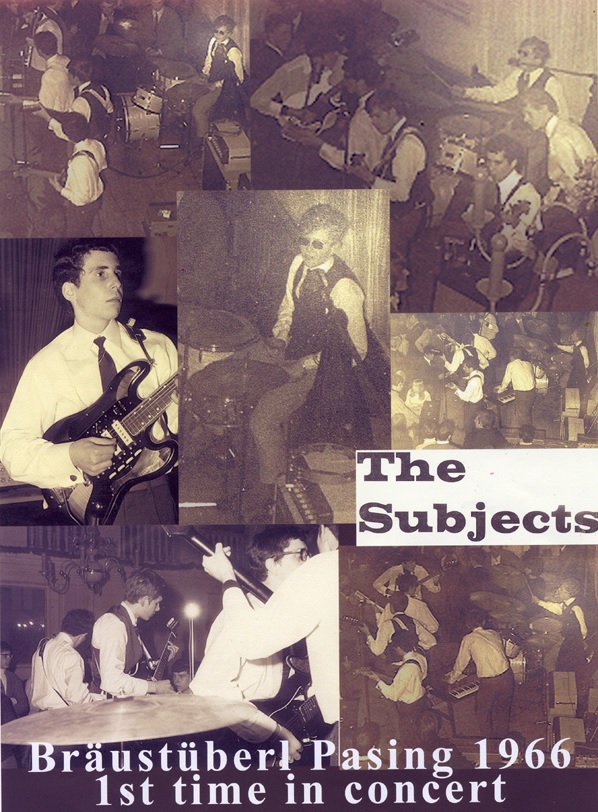
When our drummer left the band for some reason, the others in the band thought that three guitarists are enough and I should do the drums. But I had no drums, we had no amplifiers, no microphones, etc. So the first gigs in new formation always had to take place where we could perform with the equipment from other bands.
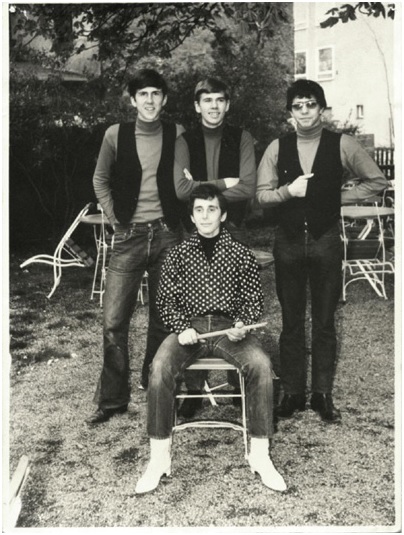
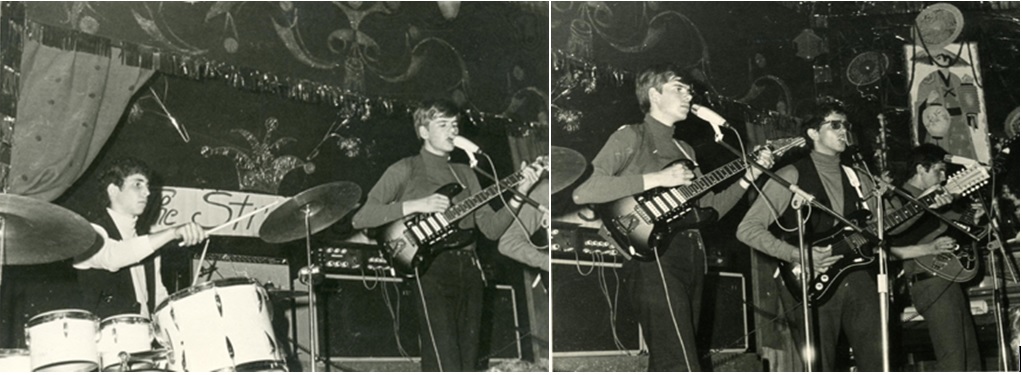
You changed your name to Subject ESQ.
A few months later, our lineup changed again. Michael’s friend and neighbor Stephan Wissnet (bass, vocals) and Gerd Stöhr (guitar, vocals) joined the band. We finally had our own, partly self-built equipment, my first own (Sonor) drums and a real practice room in the basement of a youth center in Munich-Laim. There we also played for the first time self organized concerts. The emphasis was on the concerts, not on usual (at that time) beat parties with dancing. All kids were sitting on the floor and ‘had to’ listen. Our repertoire was based strongly on the hits from England, which we heard on Radio Luxembourg and the Bayerischer Rundfunkt was not on the playlist. But even more and more of our own compositions appeared on the setlists.
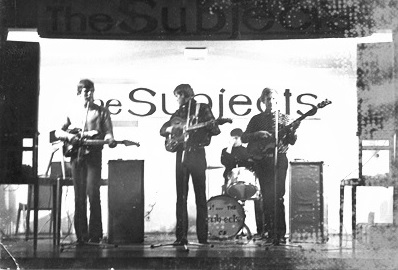
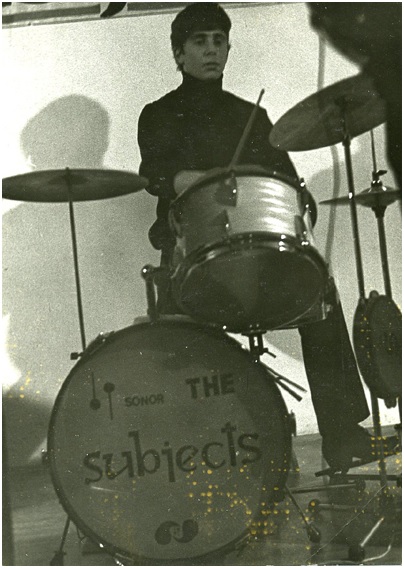
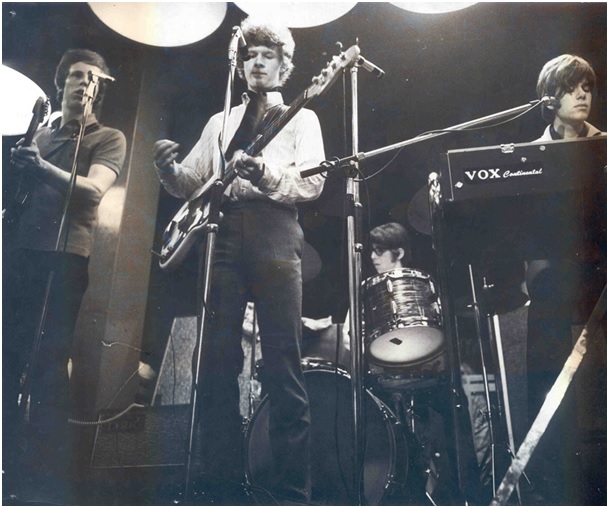
In 1968 we won a beat band competition with Gerd Stöhr in the Löwenbräukeller in Munich. When Gerd left us later, because he had to go to Berlin to study, in 1969 Peter Markl became our new guitarist. This changed our style and our name. As SUBJECT ESQ. we got rockier, but also the blues influenced us a lot and more and more Michael Hofmann de Boer and Stephan Wissnet focused on their own compositions.
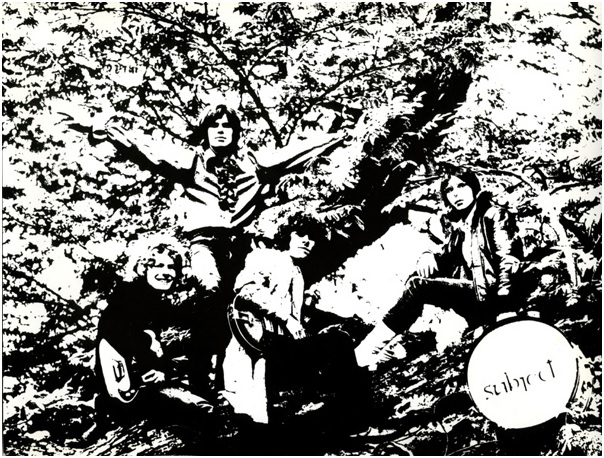
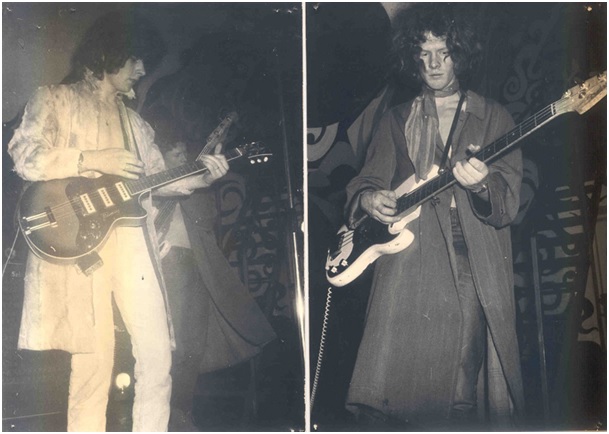
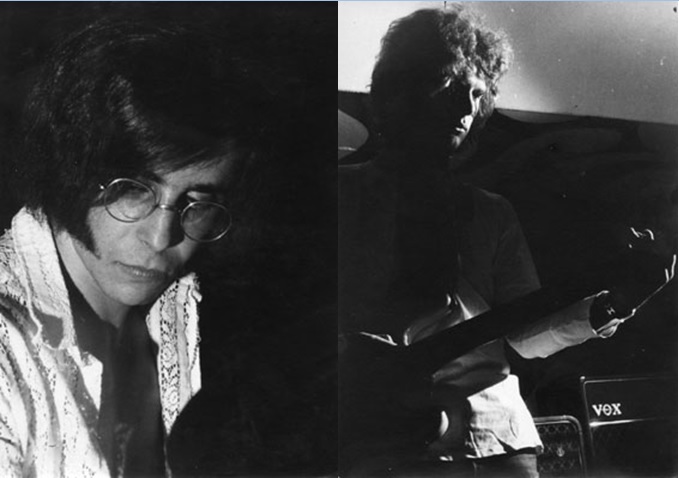
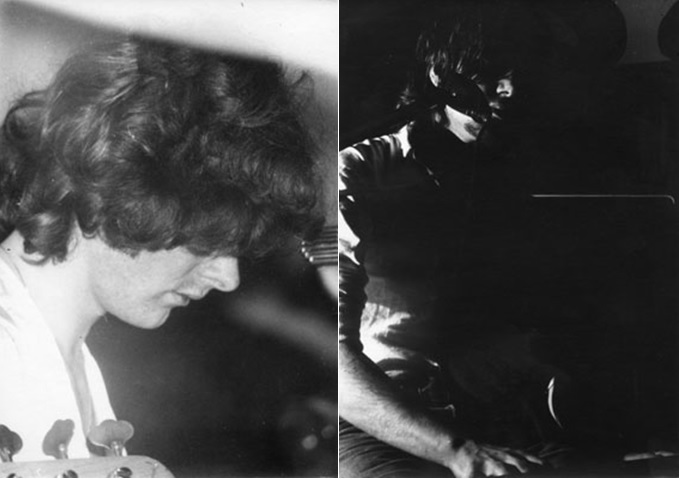
How did you get signed to Epic? What are some of the strongest memories from recording SUBJECT ESQ. album? Where did you record it?
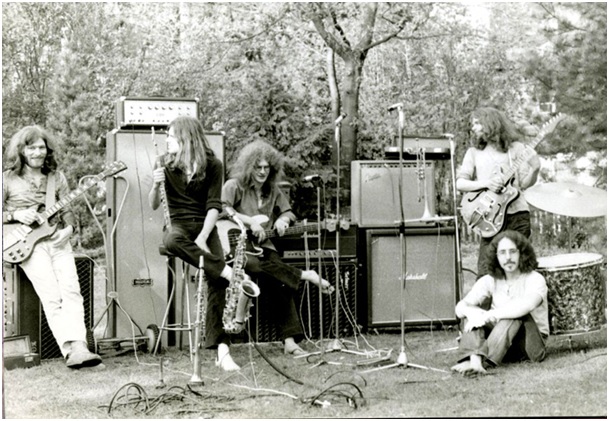
“…we finally found the sound that we had envisioned for our musical world.”
Over a longer period of concerts and concentration on his own compositions, Alex Pittwohn joined the band in 1972. He played harmonica very well and was a vocal complement to our polyphonic singing. Musically, we were now listening to John Mayall and his The Turning Point, Derek and the Dominos and their Layla. This kind of music brought Peter Markl to the band. We also enjoyed the music by bands like the Pink Floyd (Dark Side of the Moon), Yes (Close to the Edge), Jethro Tull (Stand Up), If, The Remo Four, Man, King Crimson, Gentle Giant and many other in this musical sense.
When Peter Stadler joined the band in 1972 with his Hammond organ, we finally found the sound that we had envisioned for our musical world. Through the numerous concerts in Germany, we grew our fan base and also our desire to produce an LP. I had contacted the CBS in Frankfurt and was able to convince Herman R. Zentgraf, who at the time was very successful in producing German artists for CBS, of our concept in releasing an album. In the Union Studios in Munich we also found the right sound engineer, Reinhold Mack, who later recorded bands like Queen, ELO, Sparks, Black Sabbath and others in Giorgio Moroder’s MusicLand Studios in Munich.
Four weeks before we were due to go to the studio, two heavy blows hit us. Our producer Herman R. Zentgraf was killed in a car accident. It was horribly and a disaster for our record production. We had no professional experience with studio recordings, especially because it was to be our first album. In addition, our guitarist Peter Markl had decided at short notice to get out. He did not want to have anything to do with a capitalist, exploitative, American corporation. So what do you do? Mack took on the role of producer and we found in Paul Vincent Gunia, an outstanding studio guitarist, who managed in a short time to record our not very simple, but very complex titles in the studio. Our first album was released with the band name SUBJECT ESQ. We recorded at the Union Studios in Munich in 1972 and published it at CBS (Epic).
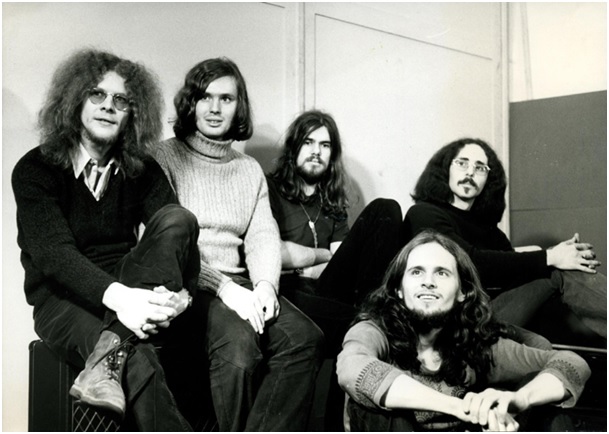
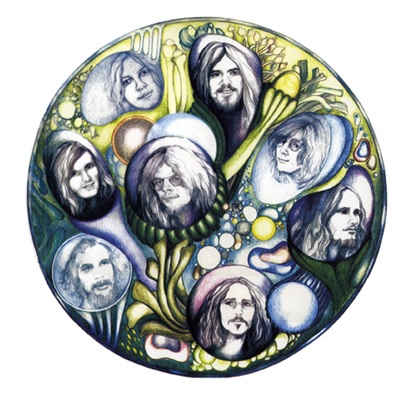
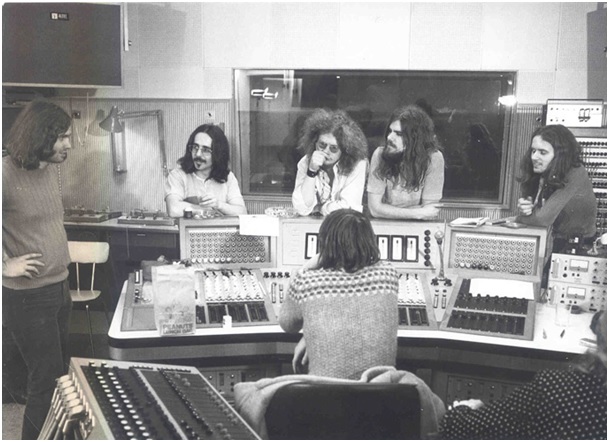
What was the main concept behind Subject ESQ? You played a lot of shows.
A difficult question. I believe that there was no real concept in terms of planning musical processes, structures and directions. We have played a lot of concerts, especially in and around Munich, of course, but also in Germany. We rehearsed in any spare minute we had back then. We were accompanied by the saying, “SUBJECT ESQ. will be ‘the most rehearsed band’ in the world”. We had intense rehearsals and sometimes hard discussions about our music. Especially between Michael Hofmann de Boer and Stephan Wissnet. Our own music and interpretation was finally ‘born’. This shaped our style so much that we still have our titles stored in ‘long term memory’. Not perfect in every detail, but they have never been completely lost over the long time. Today we play a lot of it again live and better than ever.
Of course, the big bands of that time were a role model and an incentive for us. Although we were still very young and school studies and music ran parallel, we also wanted to achieve this quality. In that sense, we were semi-professionals, who really did spend all their free time, all our energy in the music, but were still bound to our home.
Maybe you will hear that on our first album SUBJECT ESQ. We often think what the album would have been like if we had been in the studio with our original producer Herman R. Zentgraf and if Peter Markl, our guitarist, had not left.
You got a new contract with Ariola in 1973 and changed the name to Sahara.
At CBS in Frankfurt there was no one who really knew us and could do something with our extraordinary and very demanding music. That’s why nobody really wanted to take care of our SUBJECT ESQ. album release from 1972. The album was difficult to find in the stores and there wasn’t any support or promo tour. Fortunately, after I contacted a label manager from Ariola (Hille Hillekamp) in 1972, he appeared at a concert in Munich. He was so impressed by our music that he signed us as the first band for his new Ariola label ‘PAN’ in 1973. The great thing was that Ariola was based in Munich, so we were close by, if there was something to discuss. In the course of negotiating with Ariola, and because we were still pissed off on CBS, we wanted a complete ‘reset’, a complete new beginning, and changed our name to SAHARA.
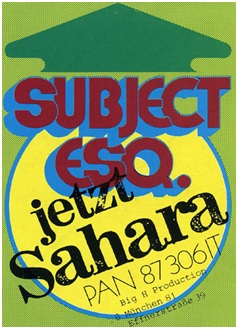
I need to explain this again: SAHARA = SUBJECT ESQ!
After the release of our first album SUBJECT ESQ. in 1972, Hennes Hering (organ) from Out of Focus and Nick Woodland from Gift joined the band as new lead guitarist. That is still our lineup today! Small note: the name change is annoying in retrospect and was unnecessary, but, from the emotional point of view of that time, perhaps understandable.
Sunrise followed. Your sound changed quite a bit…
We called our first album on the PAN label Sahara Sunrise. In 1973 we joined the MusicLand Studios in Munich, which belonged to Giorgio Moroder. Mack took over the production again.
Of course, our sound changed over the time between the two albums, not just because Hennes on the Hammond and Nick on the guitar brought their own styles. A special challenge was the song “Sunrise”, which filled the entire B side of the LP with 27 minutes and 20 seconds in length. For this reason, Mack flew to London to make the master for the vinyl-pressing because he wanted to get the most out of the grooves. To this day, this title in the progressive rock scene is an outstanding example of the music of the 70s. We still play “Sunrise” live – often in full length.
We have re-released the CD version of our 1974 album Sahara Sunrise in a revised version – both sound (remastered) and artwork (restored) – in April 2019. The case is like the original flip album designed as a paper-sleeve, the CD looks like the original LP: black, in vinyl look with grooves on the top and a label in the middle. In addition, two bonus tracks – the single version of “Rainbow Rider” and a live version of “Sunrise” – a 20-page booklet with all the texts and various photos and memorabilia from the years 1973-74.
Here is our “Promotional Jingle” on Youtube!
Three important music magazines wrote great reviews for the CD: “Eclipsed” (06/2019 Nr.211) and “GoodTimes” (3/2019 Nr.160) and the online magazine “Rocktimes“. You can buy the CD Sahara Sunrise (order number OW 051) at http://ohrwaschl.de/
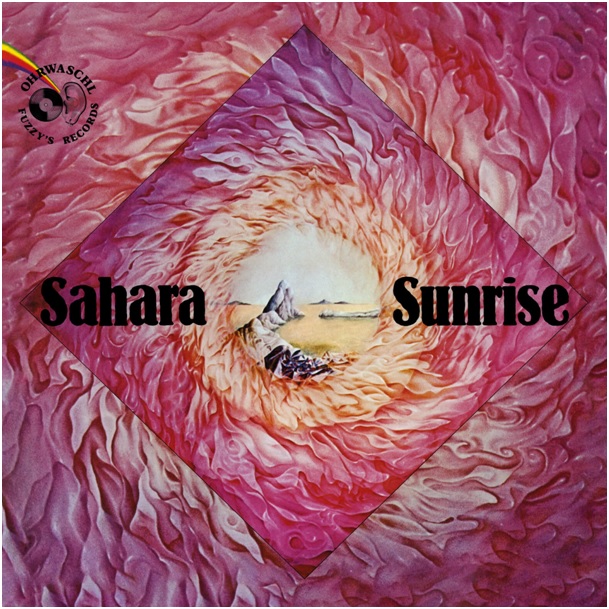
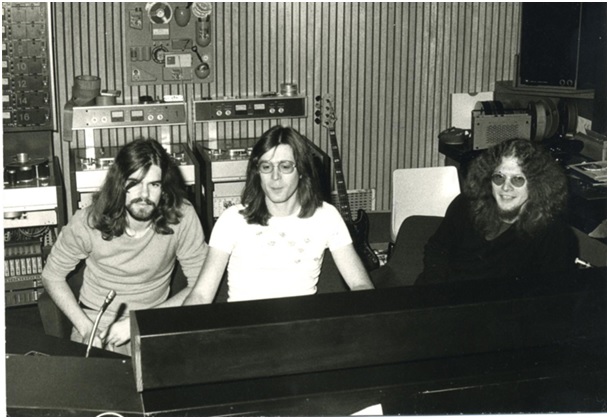
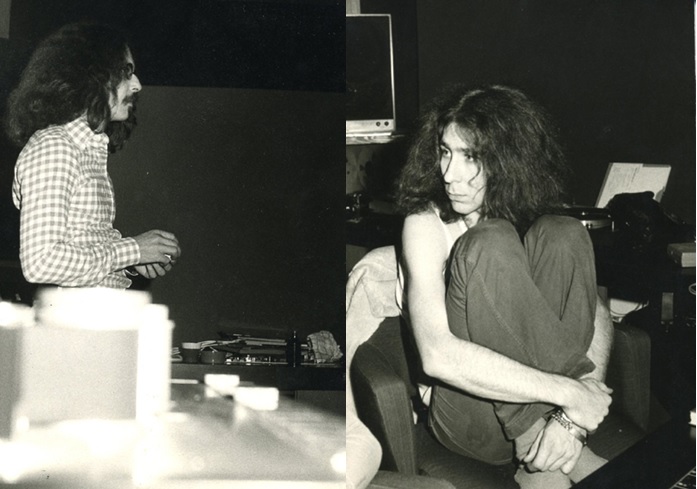
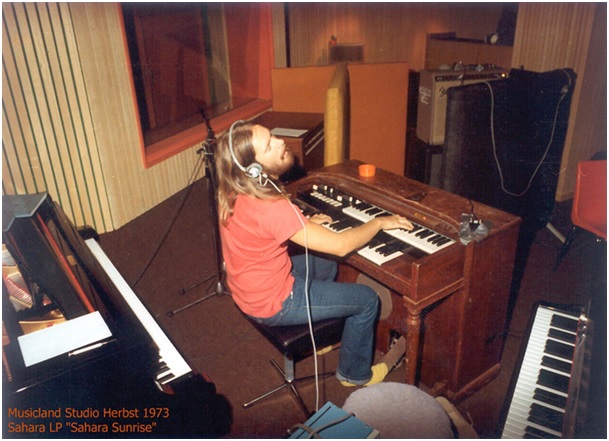
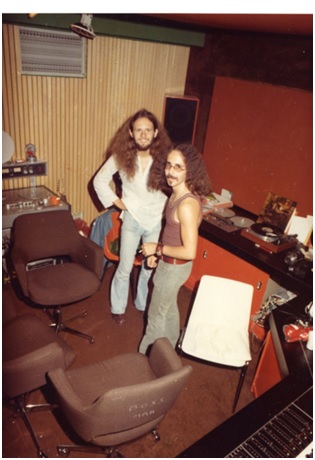
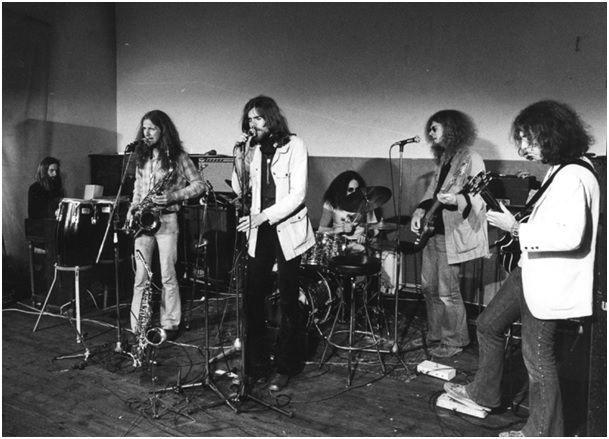
How about For All the Clowns?
I can only comment on this topic from my subjective perspective, because I was no longer involved in this studio production. I do not know exactly who played a crucial role in the band. The way in which this happened can be seen in the documentary film by Michael Hofmann de Boer, “Stationen einer Rockgruppe” – “Stages of a Rock Group,” which he shot for the HFF – Hochschule für Fernsehen und Film in 1976.
But again back to the beginning of the band’s history: I founded this band together with Michael Hofmann (still without the suffix de Boer) in the early sixties. Without me this band would not have existed, at least not this one, maybe another without me. I invented the band name and was responsible for everything from organization and business to finances and dealing with record companies, etc. from the very beginning. I was not only the drummer, but also manager, promoter, booker, graphic artist, secretary of THE SUBJECTS, SUBJECT ESQ. or SAHARA. It is not financial, it was and is pure idealism and part of my life story, which reaches far into our private relationships.
When I was told in 1974 that the band wants to become ‘professionals’ and think they need an other drummer, I was a bit offended and very sad. After all, the others in the band at the time were not exactly world champions on their instruments. In the end, it did not work out the way they had imagined. In addition, I think that the other members of the band did not really realize that they also cut off some of the band’s roots and the sensitive network of management. On the other hand, I knew that after graduation I would not become a professional drummer, that I wanted to study and then continue to work in the music industry.
Also for Nick Woodland this announcement came as a surprise. He decided to leave the band with me and earn his money rather than being a professional in other bands and as a studio guitarist.
So I accepted that decision and was curious to see which drummers would replace me. In the process, the rapidly changing castings and activities overlap in time. With Holger Brand (drums) from Missing Link and the studio guitarist Günther Moll the album For All the Clowns was recorded in 1975 with Zeke Lund (Meat Loaf, Marius Müller-Westernhagen) at Ariola Studio Munich. Then mixed by Robin Black in London and published in 1975. Already in the fall of 1974, Peter Maffay found interest in the Sahara bassist Stephan Wissnet. The end of the year saw a big club tour and Sahara – with Stephan Wissnet, Hennes Hering, Holger Brandt and Günther Moll was hired. During this time I played together with Michael some concerts with the Munich band Saffran. Later, in 1975, when Sahara was touring Holland, Holger and Molly had already left the band and Werner Schmitt stepped in as drummer. That’s it then, in 1976 the band Sahara had disbanded.

Not quite, because on June 24, 1977, I had organized a very special farewell concert in the Theater der Jugend (Schauburg, the late Blow Up Discothek) to present the above mentioned documentary film of Sahara by Michael Hofmann de Boer, “Stationen einer Rockgruppe”. It was a rock concert with all available musicians who had ever been in our band.
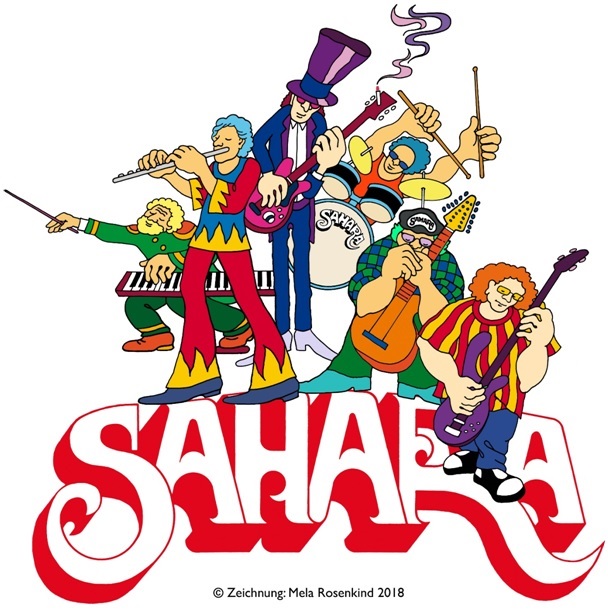
What happened next?
After that, there was a very long break. Everyone went their separate ways after the band’s dissolution. I graduated in Political Science in 1981, worked with a well known industry lawyer from the German music business, founded a music publishing house (Power To The Artist) and a management office (Music Consulting), managed various bands (such as Channel 5 from Hamburg), released the so-called ‘Italo Welle’ in Germany (Al Bano and Romina Power, Umberto Tozzi, Raf, Toto Cutugno and many more) and promoted artists from Austria (STS, Ludwig Hirsch).
Michael Hofmann de Boer graduated from the HFF in Munich in 1976 and since then has been successful as a composer for various artists and film and television productions (for example, the series ‘Die Rosenheimkops’ on ZDF). Stephan Wissnet became assistant to Mack at the MusicLand Studios in Munich and played bass on Freddie Mercury’s solo LP Mr. Bad Guy. He later worked with Paul Vincent Gunia for many years until Paul’s death in October 2016. Alex Pittwohn has been the host of several restaurants in Munich and Nick Woodland is still traveling with his own band. In the past, he played for numerous well known artists such as Amon Düül II, The Clash, Donna Summer, Herbie Mann, Marius Müller-Westernhagen and many years for Ringsgwandl.
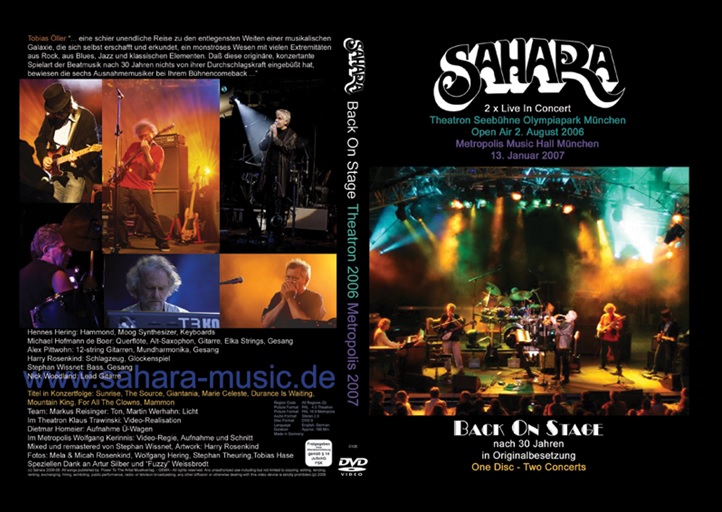
Around 30 years passed until the reunion in 2006 on the “Seebühne” in the Theatron in the Munich Olympiapark. 5,000 people, some with tears in their eyes, marveled that the cult band of their youth still existed. Sahara was BACK ON STAGE in the original line up!
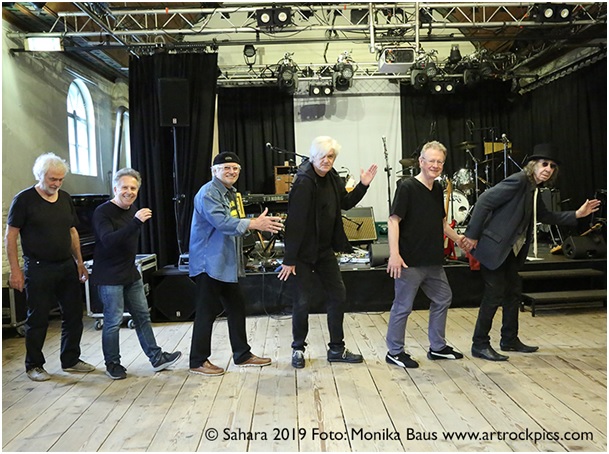
Whose currently in Sahara? What are some future plans?
It’s the same lineup since 1972! Michael Hofmann de Boer, (fl, keys, g, voc), Harry Rosenkind (dr), Stephan Wissnet (b, voc), Hennes Hering (org, key), Alex Pittwohn (harp, g, voc) und Nick Woodland (lead-g).
As long as we are healthy and everyone in the band really wants it (sometimes I’m not so sure), we’ll continue. Maybe we succeed, like in Burg Herzberg 2007, to play again at festivals. Hello organizer, please contact me! After all, we’re probably one of the last 70s prog bands in the world to still perform in their original line up and, believe me, we’re better then ever.
Thank you for taking your time. Last word is yours.
This is the message I originally formulated for this interview. But sometimes there are developments that throw all plans overboard. On the 14th of October 2019 I had a meeting with Michael Hofmann de Boer, his wife Barbara and Hennes Hering. It was about future planned concert dates, about the business structures of my management and about the future of the band. We were basically in agreement. But the question was whether the other members of the band would also join in. Unfortunately – as I had already suspected (see the original version above)- this is not the case, there is no longer any interest on their side to continue the project “Sahara”. A pity and very sad, because the time after the reunion in 2006 – longer than the phase after our band foundation in 1966 – was successful in every respect. We were, I have to say now, live better than ever, we played numerous concerts in extraordinary locations, our sound, our lightshow and our artwork was on a high level, we built up a Sahara archive on our website, our new CD releases got excellent reviews in the relevant media, the press celebrated our concerts and the extremely loyal fans moved with us from gig to gig like a caravan. I grieve especially for these fans, because Sahara was a large part of their lives. Thank you, keep on rockin’! Harry
The following photos © 2014 Sahara – Mela and Ben Rosenkind

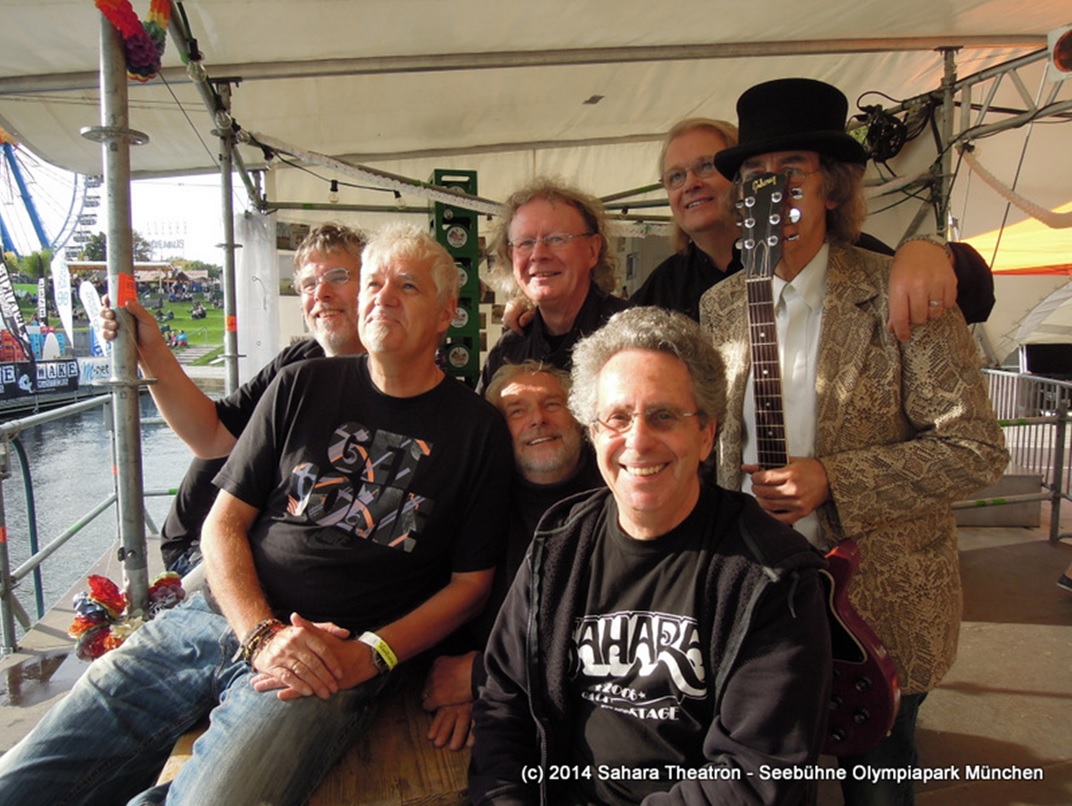
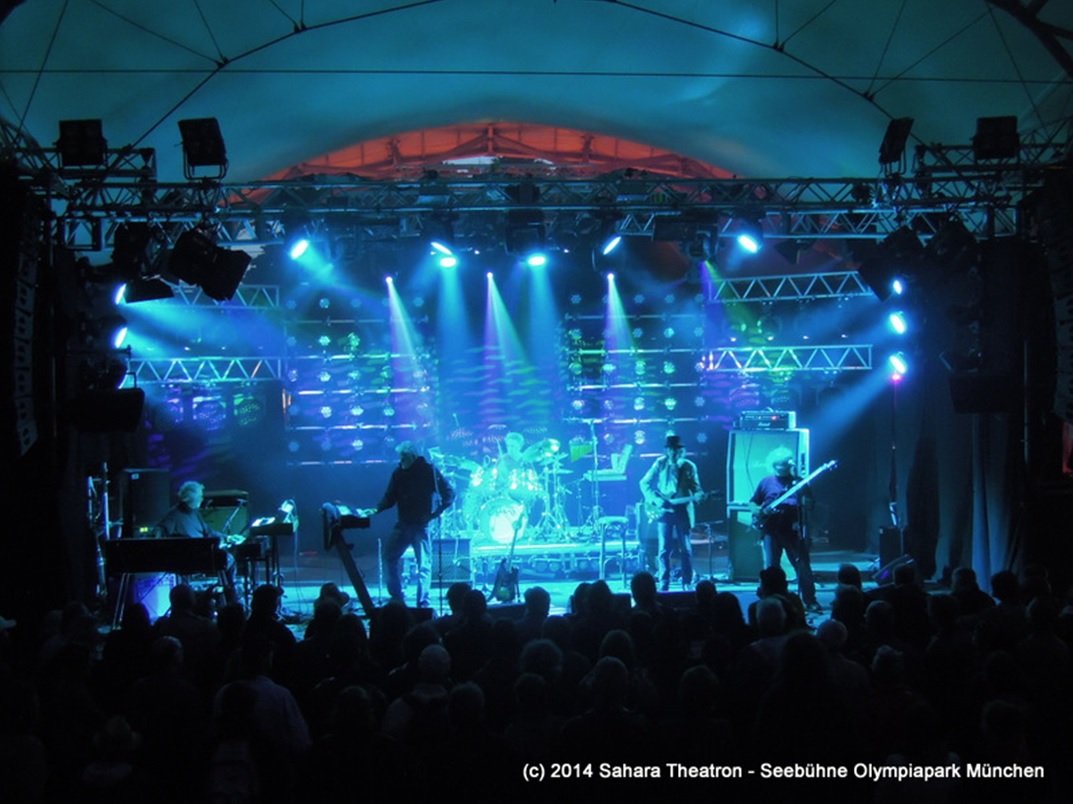
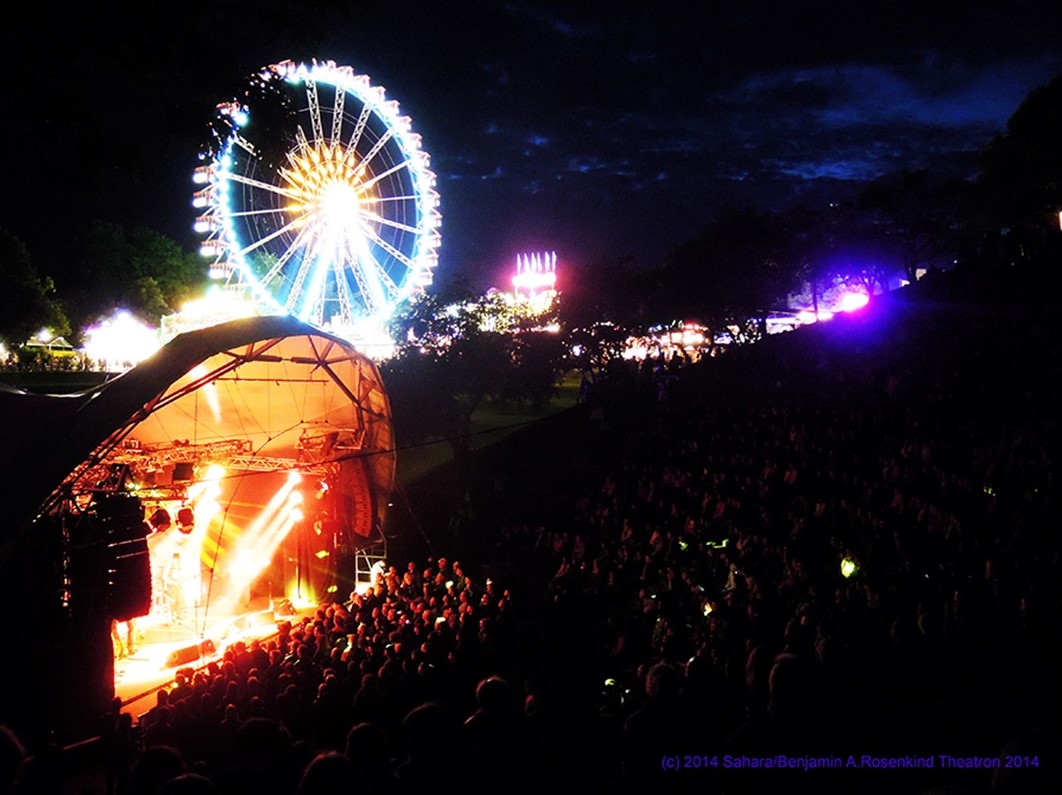
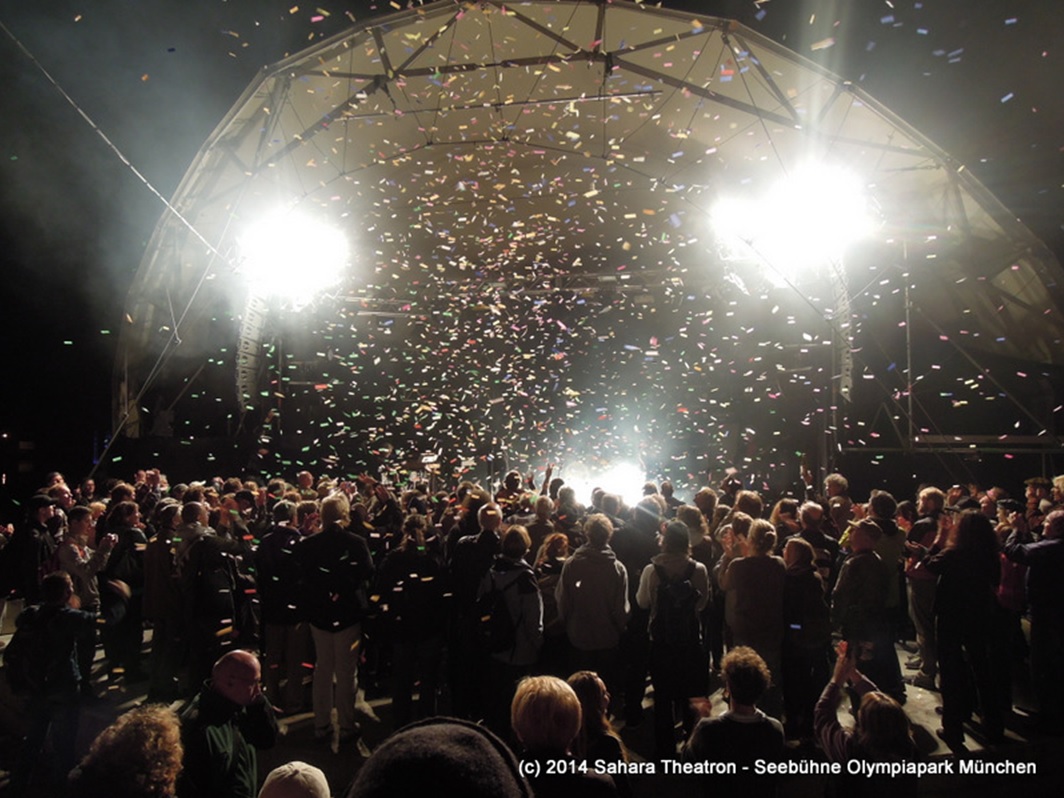
– Klemen Breznikar
© All pictures Sahara/Germany
Official Website
All Rights Reserved




One of the more eclectic groups of the time. Nice photos.